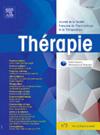The Christmas adverse event syndrome: An analysis of the WHO pharmacovigilance database
IF 2.2
4区 医学
Q3 PHARMACOLOGY & PHARMACY
引用次数: 0
Abstract
Objectives
We hypothesized that during the Christmas season the safety profile and the toxicity of some drugs may be exacerbated. We therefore assessed and characterized changes in drug safety profiles over the Christmas period.
Design
We performed a retrospective longitudinal analysis of adverse events reported in the World Health Organization (WHO) pharmacovigilance database between April 1st 2017 to March 31th 2023.
Setting
We extracted cases reported by the 5 main contributors’ countries of the WHO pharmacovigilance database with a Christmas tradition: USA, France, Germany, Italy and UK.
Participants
We analyzed 4,999,459 individual case safety reports from USA (n = 3,498,961), France (n = 419,018), Germany (n = 398,763), Italy (n = 251,641) and UK (n = 431,076), reported between April 1st 2017 to March 31th 2023.
Main outcome measures
Monthly reports of adverse events were analyzed. Time trend, seasonal effect a Christmas effect (December–January) were explored.
Results
We found 91 adverse events significantly more frequently reported during the Christmas period, independently after controlling for winter effect and general tendency. The main type of adverse events were psychiatric disorders, infections and skin and subcutaneous disorders. The highest numbers of attributable cases to Christmas were found for drug dependence, emotional distress, and drug withdrawal syndrome. The most involved drugs were oxycodone in psychiatric disorders (n = 47,527), docetaxel in skin disorders (n = 9440) and social circumstances (n = 1940), olmesartan in gastrointestinal disorders (n = 1263), fentanyl in cardiac disorders (n = 929), adalimumab in infections (n = 11,316) and immune system disorders (n = 3781), and collagenase clostridium histolyticum in reproductive system disorders (n = 318).
Conclusions
Our study shows that a range of drugs adverse events are more frequently reported at Christmas compared to other periods of the year, notably psychiatric disorders, infections, and skin disorders.
圣诞节不良事件综合征:世界卫生组织药物警戒数据库分析。
目的:我们假设在圣诞节期间,某些药物的安全性和毒性可能会加剧。因此,我们评估和描述了圣诞节期间药物安全概况的变化。设计:我们对2017年4月1日至2023年3月31日期间世界卫生组织(WHO)药物警戒数据库中报告的不良事件进行回顾性纵向分析。背景:我们提取了具有圣诞节传统的世卫组织药物警戒数据库的5个主要贡献国报告的病例:美国、法国、德国、意大利和英国。参与者:我们分析了2017年4月1日至2023年3月31日期间报告的来自美国(n=3,498,961)、法国(n=419,018)、德国(n=398,763)、意大利(n=251,641)和英国(n=431,076)的4,999,459例个体安全报告。主要观察指标:分析每月不良事件报告。探讨了时间趋势、季节效应和圣诞节效应(12月- 1月)。结果:在控制冬季效应和一般趋势后,我们发现91个不良事件在圣诞节期间的报告频率显著增加。不良事件的主要类型为精神障碍、感染和皮肤及皮下疾病。圣诞节导致的最多的病例是药物依赖、情绪困扰和药物戒断综合症。涉及最多的药物是精神疾病中的羟考酮(n=47,527),皮肤病中的多西他赛(n=9440)和社会环境中的多西他赛(n=1940),胃肠道疾病中的奥美沙坦(n=1263),心脏疾病中的芬太尼(n=929),感染(n=11,316)和免疫系统疾病中的阿达木单抗(n=3781),生殖系统疾病中的溶组织梭菌胶原酶(n=318)。结论:我们的研究表明,与一年中的其他时期相比,圣诞节期间报告的一系列药物不良事件更为频繁,尤其是精神疾病、感染和皮肤病。
本文章由计算机程序翻译,如有差异,请以英文原文为准。
求助全文
约1分钟内获得全文
求助全文
来源期刊

Therapie
医学-药学
CiteScore
3.50
自引率
7.70%
发文量
132
审稿时长
57 days
期刊介绍:
Thérapie is a peer-reviewed journal devoted to Clinical Pharmacology, Therapeutics, Pharmacokinetics, Pharmacovigilance, Addictovigilance, Social Pharmacology, Pharmacoepidemiology, Pharmacoeconomics and Evidence-Based-Medicine. Thérapie publishes in French or in English original articles, general reviews, letters to the editor reporting original findings, correspondence relating to articles or letters published in the Journal, short articles, editorials on up-to-date topics, Pharmacovigilance or Addictovigilance reports that follow the French "guidelines" concerning good practice in pharmacovigilance publications. The journal also publishes thematic issues on topical subject.
The journal is indexed in the main international data bases and notably in: Biosis Previews/Biological Abstracts, Embase/Excerpta Medica, Medline/Index Medicus, Science Citation Index.
 求助内容:
求助内容: 应助结果提醒方式:
应助结果提醒方式:


